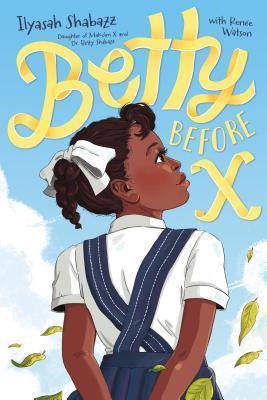★★★★★

A wonderful middle grade book that exposes young readers to civil rights activism in the 1940s from a tween's point of view.
There's so much I love about this book. Mostly, I love the idea of showing young readers that every person who has ever made a difference in this world - every musician, athlete, activist, or scientist - was once a child, just like the rest of us. Each child has so much potential!
The book has a Biblical theme of "reaping what you sow", and as Betty tends to her "planted seeds" in relationships and activism, she learns that both require patience, care, and attention before she can "reap" any rewards. But Betty herself is also a seed, and through the love and guidance of those around her, she matures into a strong, thoughtful, and compassionate leader.
I like that the book touches upon race-related realities of growing up black, like how Betty and her friends rely on
Ebony magazine for hairstyle ideas, and how dark-skinned Betty notices that even in
Ebony, lighter skin is held up as desirable.
There's also some good modeling of respectful dialogue between Mr. Malloy and Deacon Boyd, who disagree in how they believe Negroes should go about trying to achieve equality. In the same way, Betty shows us that even though she and Phyllis have similar disagreements, they can still be friends.
There are a lot of positive messages woven into the story. Betty learns to overcome hardships by finding the good and praising it, and by counting her blessings. She also develops a strong sense of doing by following the Biblical passage that says "faith without works is dead." (James 2:26)
Young readers will get a sense of how life was different in the 1940s. The word "Negro" is used. Betty listens to records with her best friend Suesetta, enjoys learning to sew, and the local activist organization is called the Housewives' League. Only the boys in her family go sledding. Getting a whipping is nothing to call the police about, though it is still serious enough to justify a change in custody. And, of course, Betty's experiences while shopping illustrate the injustice, cruelty, and dehumanization of the overt racism of the time period.
Parents should know that this book does mention Leon Mosley, a 15-year-old black boy who was shot in the back and killed by police officers in 1948. Even if readers are aware of the current Black Lives Matter movement, perhaps they might be surprised to learn that policy brutality is not new, and the events currently being protested are just the same as events that were protested 70 years ago.
The back of the book includes several interesting sections that help shed light on how much of the book was fact, and how much was fiction.
One final thing to note: Despite the reference to Malcolm X in the title, the book doesn't actually talk about Malcolm X at all. The title might be confusing for some young readers who aren't familiar with Malcolm X. The extent of his mentions are basically limited to the dust jacket's front inside flap, which says, "Before Betty Shabazz met Malcolm X..." and the Author's Note at the back of the book, which says, "Dr. Betty Shabazz... is known to many as the wife of El Hajj Malik El Shabazz (Malcolm X)." This book is 100% about Betty Shabazz and does not in any way try to explain who Malcolm X was, and it's just fine with me if maybe a child reads it and one day later learns who Malcolm X is and thinks, "Oh, he's the guy who married Betty Shabazz"!
 After reading Roll of Thunder, Hear My Cry, book 4 in the series about the Logan family, I figured it'd be worth reading the rest of the series as well.
After reading Roll of Thunder, Hear My Cry, book 4 in the series about the Logan family, I figured it'd be worth reading the rest of the series as well.








